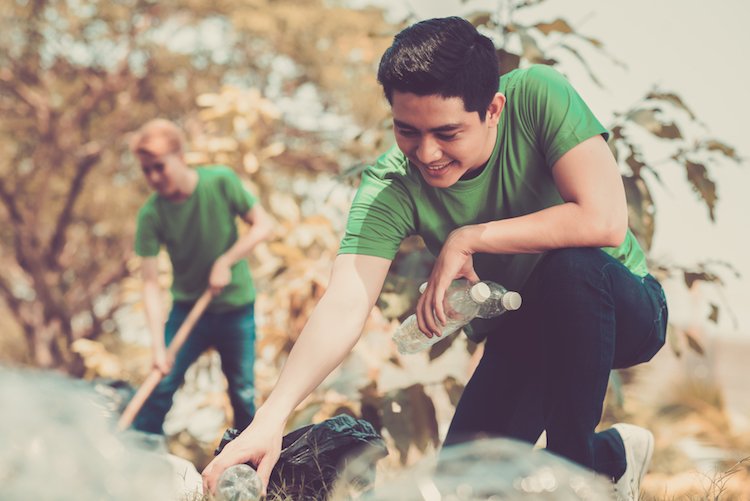Recovering from addiction is rarely easy, but there are things that can make your journey lighter. From getting quality sleep to finding purpose through volunteering, Amber Speck shares seven different tips to help you on your way...
There’s no doubt about it — recovering from addiction is a bumpy road. At times, going to meetings and staying vigilant can be both emotionally and physically exhausting. As such, your mind and body need to be in top shape in order to successfully manage recovering from substance abuse and enjoying a life committed to healthy habits and living. Here are seven ways you can help yourself when it comes to recovering from addiction.
1. Sleep
Getting good quality sleep — deep enough and long enough — will improve your focus, motivation, physical health, confidence and mental health. Get better sleep by upgrading your mattress. Recovering from addiction sometimes comes with unexpected physical pain. Get a more comfortable night’s sleep by focusing on a medium-firm to firm mattress (5.5-7.5 on the firmness scale) that eases back and joint pain.
2. Exercise
Exercising can be more exciting and life-changing than simply lifting weights at the gym or running on a treadmill. Take a bike ride, go kayaking, participate in a yoga class, or join a friend for tennis, golf or basketball. You can also find serenity by picking up a solo activity like hiking, mindful running or wild swimming. Exercise will not only occupy your time and keep your mind from thinking about your addiction, but the boost in endorphins will also help you better manage stress and pressure.

Exercising will help when recovering from addiction
3. Meditation
Studies show that even as little as ten minutes of regular meditation a day can have a big impact on your mental health, especially as you manage the ups and downs of recovery. There are many ways to bring the benefits of meditation into your life — sitting in the morning in silence, walking in nature, chanting a mantra, or focusing on a healthy intention. Meditation empowers you to lower heart rate and blood pressure while letting go of intrusive thoughts that can lead to relapse.
4. Cooking
Cooking is a great hobby to cultivate when you are recovering from addiction. You can explore new tastes and sensations while strengthening your brain by improving your focus, attention to detail and problem-solving skills. Cooking can also be a social event, as it’s a great way to spend time with friends or family who support your sobriety. In addition, proper nutrition will help your body recover and rebuild after being held hostage by addiction.
 Boost your recovery from addiction with good nutrition
Boost your recovery from addiction with good nutrition
5. Get social
You can’t do this alone, though, at times, you will absolutely feel it. It takes a village to support your recovery journey, but being open to a network of support doesn’t mean you have to talk about recovery all day. Build your sober social circle by taking crafting or photography classes, joining a team sport or going to poetry readings or open mic nights.
6. Finding a hobby
Having trouble finding a hobby? There are so many options and opportunities in this world that you may feel overwhelmed. When you are ready to look for a new hobby or activity, start off by creating a list of activities you liked before substance abuse took hold in your life. An easy way to find a hobby is to get back into an activity you enjoyed before drugs or alcohol took control of your free time.
“Cooking is a great hobby to cultivate when you are recovering from addiction. You can explore new tastes and sensations while strengthening your brain.”
If you're struggling for ideas, conduct an internet search for hobbies and activities near you. Jot down the ones that are available in your area and might be fun to check out. Or, ask to join a sober family member in a hobby or activity they enjoy – learn something new through the excited eyes of someone you trust and respect.
7. Volunteering
When you first enter recovery, overcoming addiction is your main purpose. However, as you become more confident, the feeling that you lack purpose may start to emerge. That’s when volunteering can be a helpful hobby to instill meaning.
In fact, giving yourself in service to others will not only occupy time, but it also gives you a daily reason to recommit to recovering from addiction. You can volunteer in person at a variety of causes, such as homeless shelters, veterans’ organizations or animal shelters. Consider bringing along your children, if you have any, for invaluable bonding opportunities.

Helping hands: keep busy and do something useful
The wrap: recovering from addiction
Recovery doesn’t end when you stop using the substances that have been dictating your life; it’s also about making healthy lifestyle choices that impact your overall health and well-being. From exercise to eating healthy, these tips will assist you when you are recovering from addiction, helping you to build a healthy, happy life. ●
happiness.com | The fine art of being: learn, practice, share
Are you a happiness.com member yet? Sign up for free now to:
■ enjoy our happiness magazine with practical life tips
■ share and support others in our happiness forum
■ learn with free online classes in our happiness Academy
Written by Amber Speck
Writing about recovery saved Amber Speck's life. After four years of sobriety, she’s ready to share her story and hopes doing so will help others. That's why she created writeaboutrecovery.com. Writing played a major role in her recovery, guiding her on the journey to learn how to love herself again. She knows writing can play an essential therapeutic role for others too.

Join the conversation
You are posting as a guest. If you have an account, sign in now to post with your account.